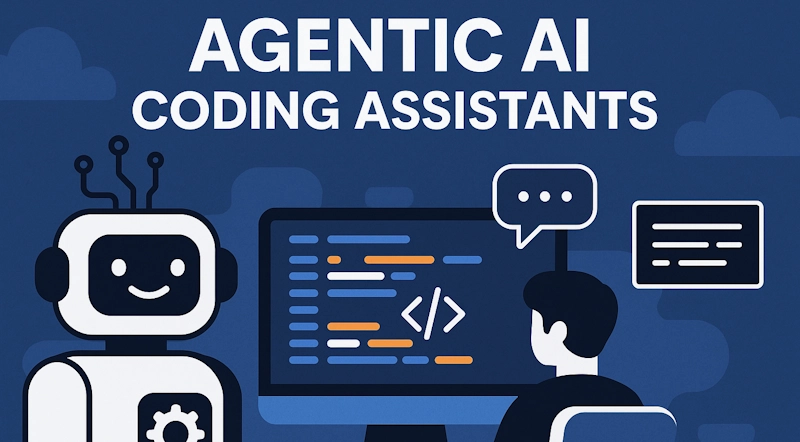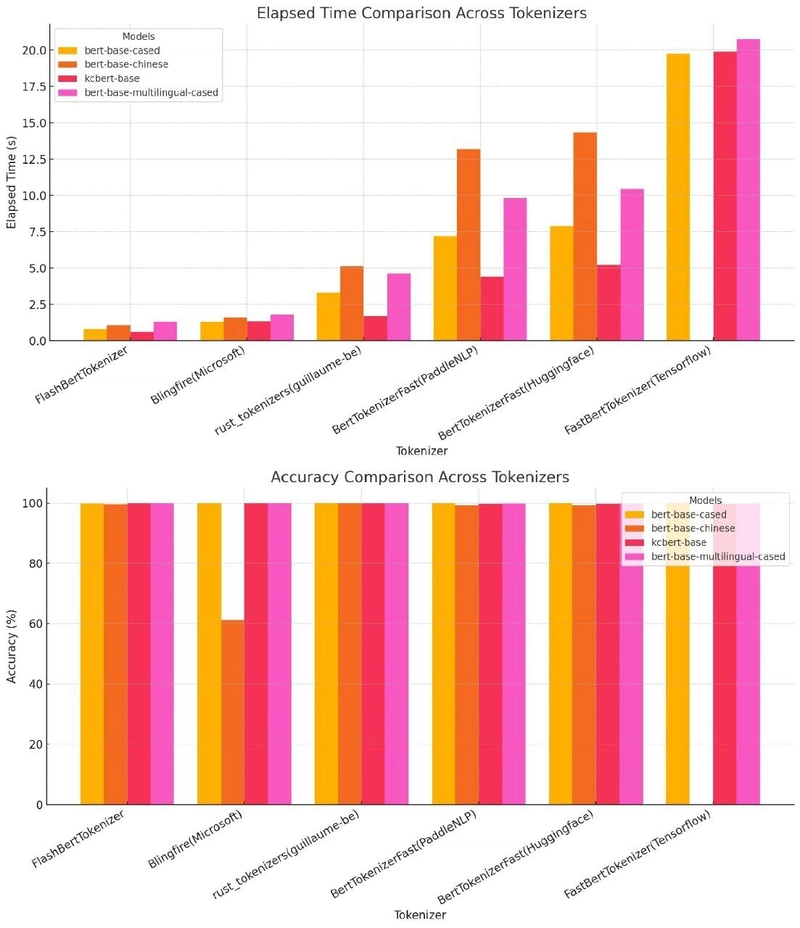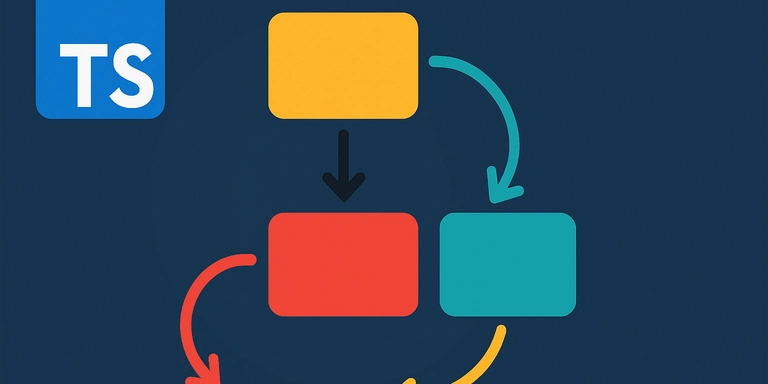Top 5 Agentic AI Coding Assistants April 2025 | APIpie
Agentic AI coding assistants are transforming software development. Unlike traditional code completion tools, these advanced IDE-integrated agents can plan solutions, modify multiple files, run tests, and iterate on code autonomously. They act as AI co-developers that use reasoning and iterative planning to tackle complex, multi-step coding tasks with minimal human intervention. As of April 2025, numerous AI coding tools claim to be "agentic," but only a few truly deliver on this promise. After researching over 10 notable solutions, we've identified the top 5 that offer the most advanced autonomous development experience. This comparison examines their degree of autonomy, supported AI models, key capabilities, limitations, and real-world practicality. What Makes a Coding Assistant "Agentic"? Traditional code assistants like early versions of GitHub Copilot provided single-step suggestions in response to prompts. In contrast, agentic AI coding assistants can: Interpret a goal in natural language Break it into an implementation plan Write or refactor code across multiple files Run the code or tests Debug errors and iterate Complete this cycle with minimal human intervention This level of autonomy accelerates development by offloading mundane coding tasks while developers focus on high-level design. However, not all solutions are equal in their capabilities, integration options, or reliability. The Top 5 Agentic AI Coding Assistants 1. GitHub Copilot (Agent Mode) GitHub Copilot's agent mode (part of the Copilot X initiative) transforms the popular AI pair programmer into an "autonomous peer programmer" that can perform multi-step coding tasks on command. Degree of Autonomy: Highly autonomous while keeping developers in the loop for safety. It determines relevant context and files, makes code modifications, runs commands, and responds to compiler or test failures automatically. It continues this plan-act loop until it achieves the goal. AI Model Integration: Powered by OpenAI's models (likely GPT-4 or a specialized Codex model). It doesn't support self-hosted open-source models; it's a cloud service tied to Microsoft's Azure OpenAI. Key Capabilities: Multi-file refactors and edits Terminal command execution with approval Test-driven development loop Transparent "Edits" panel with undo functionality Self-debugging when code doesn't compile Main Limitation: Currently in preview (VS Code Insiders only), it can be slower and more token-intensive than standard Copilot, potentially increasing costs for complex tasks. 2. Cline Cline has quickly risen to prominence as one of the most advanced open-source agentic coding assistants. It transforms Visual Studio Code into an autonomous coding environment with a unique Plan/Act toggle. Degree of Autonomy: Highly autonomous with user oversight at key decision points. In Plan mode, "Cline turns into an architect that gathers information, asks clarifying questions, and designs a solution for you to review." In Act mode, it implements the plan by creating/editing files, running code/tests, and even using a browser for verification. AI Model Integration: Flexible and model-agnostic, supporting Anthropic Claude (3.5/3.7 "Sonnet"), OpenAI GPT-4, and Google's Gemini via providers like APIpie.ai For a full list of supported models view the APIpie Dashboard Key Capabilities: Dual Plan/Act modes for architecture and implementation Multi-file and full-project refactoring Terminal integration for running commands Browser launching for UI testing Checkpoint/rollback system for safe changes Custom tools via MCP protocol Main Limitation: Requires setup of API keys/accounts for models, which can be a hurdle compared to turnkey solutions. Quality of results varies based on the model used. 3. Cursor – The AI Code Editor Cursor is an AI-powered code editor that has embraced agentic features to automate chunks of development workflow. It started as a streamlined code editor with built-in AI chat and has evolved to include an Agent mode with "YOLO" fully-automatic capabilities. Degree of Autonomy: Designed for "minimal supervision" coding assistance. The agent can read and write files, search the codebase, run terminal commands, and perform web searches. With "YOLO mode" enabled, it can execute terminal commands without asking each time—particularly useful for test-driven development loops. AI Model Integration: Supports OpenAI GPT-4, Anthropic Claude, and custom API keys. It implements a "retrieval" system to augment the model's context by indexing your codebase, mitigating token limit issues. Key Capabilities: Standalone AI-first code editor "Instant Apply" for direct code edits Global codebase operations Debugging assistance Rules feature for constraints/preferences MCP integration for external servers Main Limitation: Being a standalone editor means developers might miss plugins or behaviors from their

Agentic AI coding assistants are transforming software development. Unlike traditional code completion tools, these advanced IDE-integrated agents can plan solutions, modify multiple files, run tests, and iterate on code autonomously. They act as AI co-developers that use reasoning and iterative planning to tackle complex, multi-step coding tasks with minimal human intervention.
As of April 2025, numerous AI coding tools claim to be "agentic," but only a few truly deliver on this promise. After researching over 10 notable solutions, we've identified the top 5 that offer the most advanced autonomous development experience. This comparison examines their degree of autonomy, supported AI models, key capabilities, limitations, and real-world practicality.
What Makes a Coding Assistant "Agentic"?
Traditional code assistants like early versions of GitHub Copilot provided single-step suggestions in response to prompts. In contrast, agentic AI coding assistants can:
- Interpret a goal in natural language
- Break it into an implementation plan
- Write or refactor code across multiple files
- Run the code or tests
- Debug errors and iterate
- Complete this cycle with minimal human intervention
This level of autonomy accelerates development by offloading mundane coding tasks while developers focus on high-level design. However, not all solutions are equal in their capabilities, integration options, or reliability.
The Top 5 Agentic AI Coding Assistants
1. GitHub Copilot (Agent Mode)
GitHub Copilot's agent mode (part of the Copilot X initiative) transforms the popular AI pair programmer into an "autonomous peer programmer" that can perform multi-step coding tasks on command.
Degree of Autonomy: Highly autonomous while keeping developers in the loop for safety. It determines relevant context and files, makes code modifications, runs commands, and responds to compiler or test failures automatically. It continues this plan-act loop until it achieves the goal.
AI Model Integration: Powered by OpenAI's models (likely GPT-4 or a specialized Codex model). It doesn't support self-hosted open-source models; it's a cloud service tied to Microsoft's Azure OpenAI.
Key Capabilities:
- Multi-file refactors and edits
- Terminal command execution with approval
- Test-driven development loop
- Transparent "Edits" panel with undo functionality
- Self-debugging when code doesn't compile
Main Limitation: Currently in preview (VS Code Insiders only), it can be slower and more token-intensive than standard Copilot, potentially increasing costs for complex tasks.
2. Cline
Cline has quickly risen to prominence as one of the most advanced open-source agentic coding assistants. It transforms Visual Studio Code into an autonomous coding environment with a unique Plan/Act toggle.
Degree of Autonomy: Highly autonomous with user oversight at key decision points. In Plan mode, "Cline turns into an architect that gathers information, asks clarifying questions, and designs a solution for you to review." In Act mode, it implements the plan by creating/editing files, running code/tests, and even using a browser for verification.
AI Model Integration: Flexible and model-agnostic, supporting Anthropic Claude (3.5/3.7 "Sonnet"), OpenAI GPT-4, and Google's Gemini via providers like APIpie.ai
For a full list of supported models view the APIpie Dashboard
Key Capabilities:
- Dual Plan/Act modes for architecture and implementation
- Multi-file and full-project refactoring
- Terminal integration for running commands
- Browser launching for UI testing
- Checkpoint/rollback system for safe changes
- Custom tools via MCP protocol
Main Limitation: Requires setup of API keys/accounts for models, which can be a hurdle compared to turnkey solutions. Quality of results varies based on the model used.
3. Cursor – The AI Code Editor
Cursor is an AI-powered code editor that has embraced agentic features to automate chunks of development workflow. It started as a streamlined code editor with built-in AI chat and has evolved to include an Agent mode with "YOLO" fully-automatic capabilities.
Degree of Autonomy: Designed for "minimal supervision" coding assistance. The agent can read and write files, search the codebase, run terminal commands, and perform web searches. With "YOLO mode" enabled, it can execute terminal commands without asking each time—particularly useful for test-driven development loops.
AI Model Integration: Supports OpenAI GPT-4, Anthropic Claude, and custom API keys. It implements a "retrieval" system to augment the model's context by indexing your codebase, mitigating token limit issues.
Key Capabilities:
- Standalone AI-first code editor
- "Instant Apply" for direct code edits
- Global codebase operations
- Debugging assistance
- Rules feature for constraints/preferences
- MCP integration for external servers
Main Limitation: Being a standalone editor means developers might miss plugins or behaviors from their usual setup. Some users report occasional stability issues, especially on very large projects.
4. QodoAI (formerly CodiumAI)
QodoAI takes a unique "quality-first" approach to AI-assisted development. It provides agentic tools focused on testing, code analysis, and automated code improvement rather than free-form coding.
Degree of Autonomy: Autonomy focused on testing and code review. Qodo Cover (the testing agent) can analyze repositories, generate unit tests, run them, and iterate to improve coverage. Qodo Merge (the PR review agent) autonomously analyzes pull requests, generating descriptions and listing potential issues.
AI Model Integration: Likely uses OpenAI GPT-4 for high-level reasoning with possible support for open-source models for specialized tasks. The testing agent is open source for some languages, suggesting local model support.
Key Capabilities:
- Automated test generation and improvement
- PR review with issue detection
- Integration with major Git providers
- Support for multiple languages
- Focus on code maintenance and quality
Main Limitation: Not primarily designed for initial code generation but rather for verification and improvement of existing code. Relies on tests as guardrails, which requires good specifications or existing code to infer behavior.
5. Devin AI
Devin AI has been billed as "the world's first AI software engineer"—an ambitious agent that aims to autonomously plan, code, debug, and deploy projects with minimal human input. Unlike the other tools, it's a standalone cloud-based environment.
Degree of Autonomy: Very high autonomy—it strives to handle the entire software development cycle. After receiving a natural language task, Devin generates an implementation plan, writes code, runs it in a sandbox, debugs issues, and continues until completion. It can search the web for solutions and spawn sub-agents for specialized tasks.
AI Model Integration: Uses large language models (likely Anthropic's Claude and possibly OpenAI models) in a cloud VM that includes the code execution environment. As a closed platform, users don't directly choose the model.
Key Capabilities:
- End-to-end project planning and implementation
- Multi-file code generation
- Code execution and testing in a VM
- Web browsing for research
- Multi-agent orchestration
- GitHub integration
Main Limitation: Limited availability (closed beta) and being a separate platform makes integration into existing workflows challenging. While impressive in demos, real-world testing shows it still requires significant human review for complex tasks.
Comparison Table: Top Agentic IDEs at a Glance
| Solution | Autonomy Level | AI Model Support | Key Strength | Best For |
|---|---|---|---|---|
| GitHub Copilot (Agent) | High | OpenAI (cloud) | Integration & reliability | Everyday coding with test-driven development |
| Cline | High | Pluggable (Claude, GPT-4, Gemini) | Flexibility & transparency | Complex multi-step development tasks |
| Cursor | Medium-High | OpenAI, Claude, custom keys | All-in-one AI editor | Rapid prototyping & iterative development |
| QodoAI | Medium | Multiple models, open-source core | Quality assurance | Test generation & code maintenance |
| Devin AI | Very High | Cloud-based LLMs | End-to-end automation | Experimental autonomous development |
Future Trends in Agentic AI Development
The agentic AI coding landscape is evolving rapidly. Key trends include:
Human-AI Collaboration Patterns: Rather than replacing programmers, these tools are becoming collaborators. The most successful workflows treat the AI as a junior developer that produces output for human review and guidance.
Quality and Safety Focus: Newer agentic IDEs increasingly emphasize code quality, with agents not just coding but self-checking their work through tests and static analysis. Tools like QodoAI and Micro Agent are pioneering this approach.
Model Improvements: As models like GPT-5 and Claude 4 emerge with greater coding prowess and larger context windows, we'll see significant leaps in what agents can accomplish. The NVIDIA agentic AI framework shows how these orchestration layers will mature.
Workflow Integration: Adoption will accelerate as these tools demonstrate reliability and integrate seamlessly with established platforms and CI/CD pipelines.
Honorable Mentions
While our top 5 represent the cutting edge of agentic AI coding assistants, several other notable solutions deserve recognition:
Tabnine Enterprise: Known for its privacy-focused approach and on-premise deployment options, Tabnine has evolved from simple code completion to more agentic features in its enterprise offering.
Amazon Q Developer: AWS's AI coding companion offers strong integration with AWS services and security-focused code suggestions.
JetBrains AI Assistant: Deeply integrated across all JetBrains IDEs with language-specific optimizations.
Replit AI: Combines coding assistance with Replit's cloud development environment for a seamless experience.
Conclusion
Agentic AI coding assistants are transforming software development by automating routine coding tasks while keeping developers in control of high-level decisions. GitHub Copilot Agent, Cline, Cursor, QodoAI, and Devin AI each offer unique approaches to this vision, with varying degrees of autonomy and integration. As these tools continue to evolve, they promise to dramatically increase developer productivity and code quality.
The rise of autonomous coding agents stands to augment developers' capabilities in unprecedented ways, making the next era of software development an exciting one where human creativity is amplified by AI automation.
This article was originally published on APIpie.ai's blog. Follow us on Twitter for the latest updates in AI technology and agentic coding assistant development.
`












































































